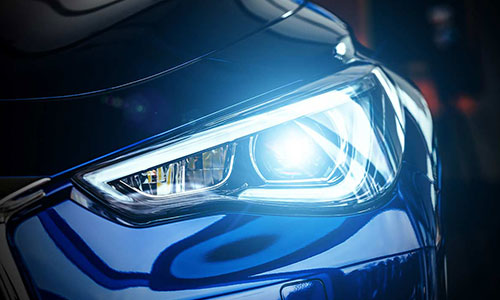
How to prepare your car for winter
Last updated November 05, 2022
It’s important to keep your car serviced and in good condition all year, but a little bit of extra thought can benefit you as winter approaches and it starts to get colder. Winter in the UK may not be as extreme as in other countries, but driving can still be dangerous as daylight hours decrease and the temperature drops close to freezing.
Just a few moments of your time can help to prepare your car for the worst weather conditions. There are many things that can cause your car to break down, so it’s worth taking every precaution possible to avoid disaster on the roads.
Value your car in under 30 seconds
Winter car checklist
Setting aside some time to check that everything is as it should be with your vehicle means you can get peace of mind that you’re safe to drive in winter conditions. Most of the checks involved in a winter car check are similar to those you’ll be used to carrying out through the rest of the year.
Be sure to cover all steps on this checklist as well as any additional measures you think you may need. After all, every car is different and you should do what you feel is necessary to keep your car healthy and yourself safe.
-
Get your car serviced
You should service your car regularly regardless of the season, but a service is particularly valuable as winter approaches. If your car is due a service, getting it done before winter means you’ll be better prepared for potentially difficult driving conditions. Many garages offer winter car checks, so may want to book your car in to ensure there are no underlying issues.
-
Clean and check lights
You should make sure all your lights, indicators and rear reflectors are clean. Be sure to check for any blown bulbs or cracked lenses and double check your full beams and fog lights. These will be required more frequently during the winter as daylight hours recede and it’s important to make sure they work effectively.
-
Check the condition of tyres
Tyres are absolutely crucial when it comes to the effectiveness of steering and braking, so you need to be sure they are in top condition. Check the pressure and the depth of their tread, and repair or replace them if needs be. You may also consider changing to winter tyres, as these are designed specifically to provide extra grip in icy and wet conditions.
-
Service windscreen, wipers and screen wash
You should thoroughly clean the inside and outside of your windscreen and also check for any chips as these can worsen in cold weather. Be sure to de-ice your screen when you need to and do it properly. Make sure your wipers are not damaged and are working properly, as they will be particularly necessary during the wetter months.
Checking that your screen wash fluid is full is also a good idea. Screen wash has a lower freezing temperature than water alone, so even if it’s diluted you’re reducing your risk of ending up with frozen washer jets.
-
Check the battery
Cold temperatures and shorter days mean there will be more strain on the battery because you use your lights and heater more. That means it’s vital to check your car’s battery for any damage coming up to winter. If your car has difficulty starting, it’s best to have the battery professionally checked. In case of emergency, be sure you know how to jump start your car.
-
Top up with antifreeze
Make sure your engine is topped up with antifreeze. Be cautious of using water to top this up – this will increase the chance of the fluid freezing when temperatures drop.
Driving safely in winter
It’s critical to prepare your car using the above checklist, but there are also further steps you can take to stay safe during the midst of winter.
Prepare for any long journeys by checking your route and any weather conditions along the way. If you expect extreme weather, modify your journey and consider avoiding any rural or hilly areas, or whether you need to make the journey at all. It’s also best to keep friends and family updated if your route changes.
You also tend to use more fuel when it's cold, so try to avoid having a tank that is less than a quarter full. You never know when you’ll need it and any journey can take longer in the winter than It usually would. Your tank isn’t the only thing that needs to be full – also make sure your phone is fully charged and consider getting an in-car charger in case you need to contact someone in an emergency.
Furthermore, you should have a winter breakdown kit at all times. This might sound extreme, but you never know when you could need one. A good kit should include:
- Torch and batteries
- Scraper and de-icer
- Hi-visibility vest
- Screen wash
- Food and drink
- Blanket and warm clothes
- Appropriate footwear in case you need to walk to safety
- A list of emergency contact numbers




